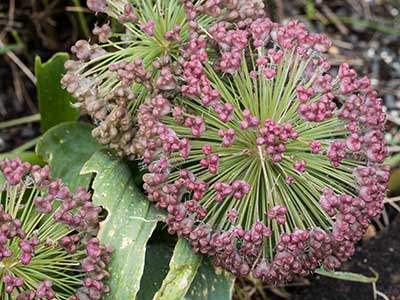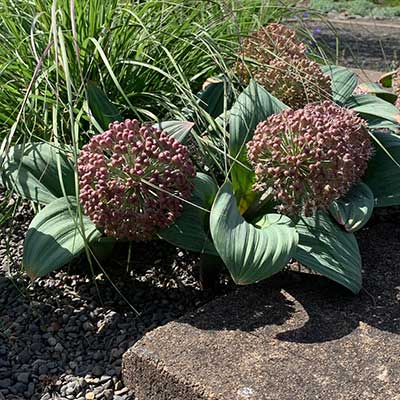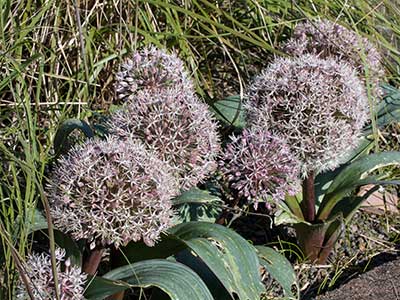Ornamental Onion
- Scientific Name: Allium karataviense
- Garden: Xeriscaping Garden
- Plant Type: Herbaceous Perennial
- Evergreen/Deciduous: Deciduous
- Sun/Shade Exposure: Full Sun
- Moisture Requirements: Moist, Well-Drained
Plant Information
Easily grown in rich, sandy to gritty, dry to medium moisture, well-drained loams in full sun. Plants form dense, slowly spreading clumps over time. Plants perform best with consistent moisture during the growing season but tolerate drought after flowering ends. Plant new bulbs 3-5" (3 times bulb width) deep and 6-12" apart in fall. Bulbs of established plants may be dug, divided and replanted in late summer to early fall after foliage has died down. Plants will occasionally self-seed in the garden, but typically will not bloom until the third year. Plants may colonize over time but are not considered to be invasive. Noteworthy Characteristics Allium karataviense, commonly called Turkestan onion, is a compact, bulbous perennial that is ornamentally grown for both its foliage and its flowers. It is native to the Karatau Mountains (hence the specific epithet) in Kazakhstan. Broad-elliptic, spreading, gray-green, basal leaves (each to 6-9" long and to 3-4" wide) appear in pairs. Leaves are sometimes mottled with purple. In late spring, a short but sturdy flowering stem rises to 10-12" tall from the center of each leaf pair. Each flowering stem is topped with a large spherical flower head (umbel to 3-6" diameter) containing tiny, star-shaped, dull pink florets. Flowers have a mild fragrance. Leaves and bulbs have a mild onion-like aroma when cut or bruised. Problems No serious insect or disease problems. Bulb rot may occur in overly moist soils. Mildew, rust, leaf spots and thrips may appear.
Data Source
https://www.missouribotanicalgarden.orgPlant Photos







